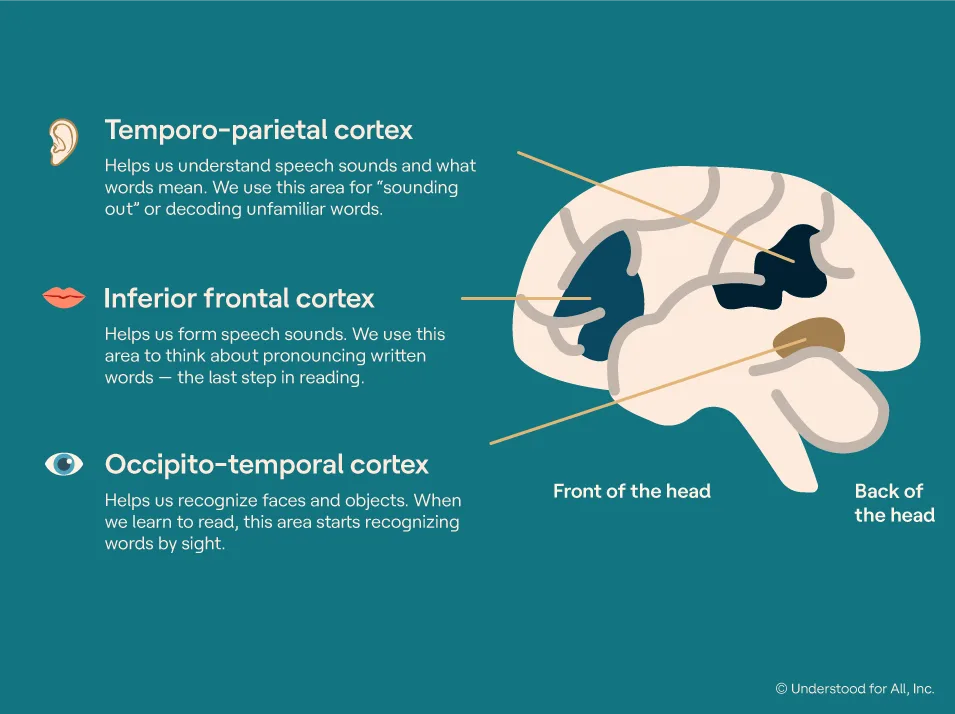How reading changes the brain
What Happens When You Start Reading Every Day?
Think before you speak. Read before you think. — Fran Lebowitz
Not all of our brains are wired to read from birth. Reading is not a skill that we are born with. We need to use brain regions that evolved for different functions to learn to read.
This presents challenges for those with dyslexia. However, some reading training can bring about significant changes. And we can notice those changes because of technology.
How the brain is altered by reading
The ability to convert letters into sounds is not innate in our brains. The brain regions intended for voice production, language comprehension, and visual processing are repurposed to help us learn to read.
Researchers have used functional magnetic resonance imaging (fMRI), a kind of brain imaging, to study these regions.
In phonological processing, the inferior frontal cortex and the temporoparietal cortex are important regions. These sections aid in deciphering the words we are viewing. The occipitotemporal cortex aids in the visual recognition of words. We can read more quickly as our visual word recognition increases.
Regardless of the language a person reads in, these three domains are engaged in reading. Individuals with dyslexia worldwide exhibit variations in these domains of the brain.
How the brain functions differently in dyslexics
People with dyslexia experience differences in the way certain brain regions relate to reading compared to those without the disorder. The dashed lines below indicate which locations are less active.
Important regions of the left side of the brain become more active when reading skills develop as a result of extensive teaching.
The right side of the brain is similarly altered by intensive reading education. The alterations in the right hemisphere of the brain could potentially compensate for deficits in the left. To determine if all of these modifications to the left and right sides of the brain are necessary for reading skills to advance, more research is required.
What we still don’t know about reading and dyslexia
Scholars have employed an array of instruments to enhance our comprehension of reading and the brain. However, many questions remain. Researchers are trying to identify the brain abnormalities that lead to and are caused by dyslexia.
The structure of the brain: The reason behind the differences in the brain regions of dyslexic individuals is yet unknown to researchers. However, when kids receive extensive reading training, their brain structure changes.
More white and grey matter is produced in their brains. Neurons, the parts of brain cells that communicate with one another, are found in grey matter. (They accomplish this by passing electrical signals through a synapse, which is a very small area.) The grey matter in various brain regions is connected by white matter.
Brain chemistry: Individuals who have higher concentrations of specific neurotransmitters are more prone to have reading difficulties. The brain cells' ability to transmit electrical signals may be hindered by these levels. However, it's too soon to tell if medicine can be helpful.
Brain waves: A brain wave is an electrical activity that occurs when clusters of brain cells synchronize their firing patterns. Dyslexics' processing of sounds or letters may be impacted by different rhythmic rhythms.
Remember that brain imaging is still primarily a research tool. Brain scans are not used by researchers to identify dyslexia.
Regarding reading, did any of the following questions occur to you?
- Could it stop Alzheimer's?
- How about stress reduction?
- How about life expectancy?
- If you only read more, could you live a longer life?
- How about vocabulary?
Reading more books will undoubtedly expose you to new vocabulary.
Speaking clearly and concisely is a need for almost all professions.
It is far simpler to pick up new words while reading than it is to read or commit them to memory when using a dictionary.
New words can gradually find their way into your everyday talks if you are constantly exposed to them.
Reading enhances focus and concentration.
Additionally, you may take frequent interruptions to inadvertently check your phone or engage in social media conversations.
REFERENCES
https://www.understood.org/
https://medium.com/



































































